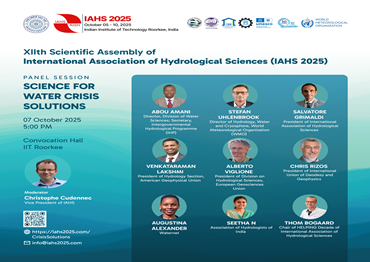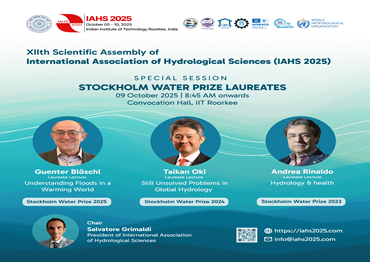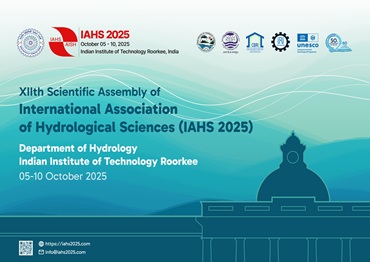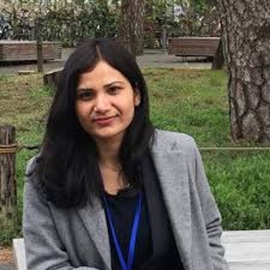Hydrological Modelling for a Resilient Future: Innovations at the Water-Climate Nexus
Side Event
Hydrological Modelling for a Resilient Future: Innovations at the Water-Climate Nexus
Sunday, October 05, 2025 (15:00-18:00) Timing (IST)
About Event:
Climate extremes and competing demands are intensifying water challenges—hydrological modelling offers critical insights for sustainable solutions across sectors and scales. This session will highlight cutting-edge application of hydrological modelling approaches for various domains designed to address complex water challenges in a changing climate. Featuring contributions from CGIAR Science Programs and Accelerator i.e. Nexus Policy, Climate Action and Digital Accelerator along global partners, the session will demonstrate how advanced tools and models are informing decision-making for sustainable and equitable development.
Topics will include integrated hydrological modelling for managing water, energy, and food (WEF) nexus, drought and flood early warning system, salinity forecasting in coastal systems, and groundwater modelling for sustainable aquifer management. Emerging areas like socio-hydrology and the integration of hydrology with public health through antimicrobial resistance modelling will also be featured.
Participants will gain insights from water risk assessment in vulnerable regions, and frameworks like Water Accounting Plus (WA+), AWARE Platform, Digital Twin, that leverage data for integrated land and water resource management. The session will conclude with moderated panel discussion how hydrological modelling can support resilience, equity, and sustainability across scales and sectors.
Event organizer

Dr. Giriraj Amarnath
Principal Researcher – Disaster Risk Management and Climate ResilienceEvent organizer
 Mohammad
Mohammad Dr. Mohammad Faiz Alam
Regional Researcher- Water Resources/Agriculture Water Management| Time | Title |
|---|---|
| 5 min | Introduction and context setting |
| 15 min | Integrated hydrological modelling for managing Water-Energy-Food nexus |
| 15 min | Modeling groundwater futures under climatic uncertainty for local policy and planning |
| 15 min | Rapid-assessment of Water Accounts for Effective Resource-use Planning in Data-scarce Regions |
| 15 min | Water risk assessment framework and role of hydrological modelling system |
| 15 min | Flood and drought forecasting and early warning to early action |
| 15 min | Salinity forecasting to support irrigation management and decision-making in a polder of coastal Bangladesh |
| 15 min | Integration of SWAT modelling and Bacterial fate and transport modelling (BFTM) for building Roadmap for pollution control in Song River Basin |
| 15 min | An agent-based socio-hydrology approach for planning sustainable and equitable water management interventions |
| 35 min | Moderated Panel discussion |
| 5 min | Closing remarks |
Focus Group: Researchers, policy makers and students
Prerequisites: Nothing
Maximum Number of Participants: 50
Guidelines, if any: No
Any other relevant information (link, website etc): https://www.cgiar.org/cgiar-research-porfolio-2025-2030/policy-innovations/ , https://www.cgiar.org/cgiar-research-porfolio-2025-2030/climate-action/



















